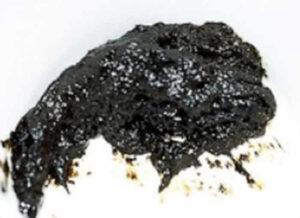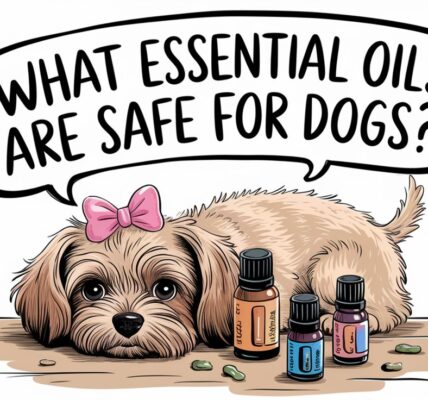- Homepage
- Health Disorders & Cure
- Dog Pooping Blood? Uncover the Top 5 Urgent Causes Now!
Dog Pooping Blood? Uncover the Top 5 Urgent Causes Now!
Table of Contents
ToggleDog Pooping Blood? Uncover the Top 5 Urgent Causes Now!
Seeing your dog pooping blood can be alarming and distressing. This symptom, known as hematochezia or melena depending on the blood’s origin, can indicate various underlying health issues ranging from minor to severe. As a responsible pet owner, understanding the potential causes, types, and appropriate actions to take is crucial for your dog’s well-being. This comprehensive guide will explore the various reasons your dog might be pooping blood, how to differentiate between types of bloody stool, and the steps you should take to ensure your furry friend’s health.

Causes of Dog Pooping Blood :
1. Dietary Indiscretion
Dogs are naturally curious creatures and often eat things they shouldn’t, which can irritate their gastrointestinal tract and cause bloody stool. Common culprits include spoiled food, non-food items, and sudden changes in diet.
2. Parasites
Intestinal parasites such as hookworms, roundworms, whipworms, and giardia are frequent causes of bloody diarrhea in dogs. These parasites damage the intestinal lining, leading to bleeding and inflammation.
3. Infections
Bacterial, viral, and fungal infections can cause inflammation and ulceration in the gastrointestinal tract, resulting in bloody stool. Common infectious agents include Salmonella, E. coli, and parvovirus.
4. Toxins and Poisons
Ingesting toxic substances such as rat poison, certain plants, or household chemicals can lead to internal bleeding, manifesting as blood in the stool.
5. Inflammatory Bowel Disease (IBD)
IBD is a chronic condition characterized by inflammation of the gastrointestinal tract, which can cause blood in the stool. The exact cause of IBD is unknown, but it is believed to be an immune-mediated disease.
6. Trauma
Injury to the gastrointestinal tract from sharp objects, accidents, or even rough play can cause bleeding and result in bloody stool.
7. Hemorrhagic Gastroenteritis (HGE)
HGE is a condition marked by sudden onset of severe bloody diarrhea and vomiting. The exact cause is unknown, but it is believed to be linked to stress, diet changes, or bacterial infections.
8. Cancer
Gastrointestinal tumors, such as polyps or malignant cancers, can cause bleeding in the digestive tract, leading to bloody stool.
9. Anal Sac Problems
Issues with the anal glands, such as impaction, infection, or tumors, can cause blood in the stool. The anal glands may need to be expressed manually or surgically addressed.
10. Coagulopathies
Blood clotting disorders, either inherited or acquired, can lead to spontaneous bleeding, including in the gastrointestinal tract. Conditions like hemophilia or platelet disorders are examples.
What Does Blood in Dog Poop Look Like?
1.Bright Red Blood (Hematochezia):

Hematochezia refers to the presence of fresh, bright red blood in the stool, indicating bleeding in the lower gastrointestinal tract, such as the colon or rectum. Causes include colitis, rectal polyps, and anal gland issues. The blood appears fresh because it hasn’t gone through the entire digestive process.
Hematochezia often accompanies diarrhea, giving the stool a red-tinged appearance. Dogs may poop more frequently and in larger volumes, with stool consistency ranging from soft to liquid. Sometimes, mucus may cover the stool, with blood appearing on the outside, indicating a problem with the lower digestive tract.
2. Black Stool (Melena):

Melena is characterized by dark, tarry stools, which result from digested blood, indicating bleeding in the upper gastrointestinal tract, such as the stomach or small intestine. Causes include gastric ulcers, tumors, and swallowed blood from oral injuries.
What Do I Do if My Dog Pooping Blood?
If your dog is pooping blood, the first step is to stay calm and assess the situation. Look for any additional symptoms such as vomiting, lethargy, or loss of appetite, as these can indicate a more serious problem. Collect a sample of the bloody stool if possible, and contact your veterinarian immediately. Provide the vet with detailed information about your dog’s recent activities, diet, and any potential exposure to toxins or foreign objects. Following your vet’s advice promptly can be crucial for your dog’s health.
Once you’ve contacted your veterinarian, follow their recommendations, which may include bringing your dog in for an examination. Treatment will depend on the underlying cause of the bleeding. It could involve dietary changes, medications, or even surgery. Meanwhile, ensure your dog is comfortable and has access to fresh water to prevent dehydration. Monitoring your dog closely and adhering to the vet’s guidance will help address the issue effectively and support your pet’s recovery.
How Do Vets Treat Bloody Dog Poop?
Veterinarians treat bloody dog poop by first diagnosing the underlying cause through a combination of physical examinations, diagnostic tests, and a review of the dog’s medical history. Once the cause is identified, treatment can vary widely depending on the condition. Here’s an overview of common treatments:
Diagnosis
- Physical Examination: The vet will perform a thorough physical exam to check for signs of pain, swelling, or abnormalities in the gastrointestinal tract.
- Fecal Examination: A fecal sample will be analyzed for parasites, bacteria, and other pathogens.
- Blood Tests: Blood tests can provide information about your dog’s overall health and detect infections, inflammation, or blood clotting disorders.
- Imaging: X-rays, ultrasounds, or endoscopies may be used to visualize the gastrointestinal tract and identify tumors, foreign objects, or structural abnormalities.
- Biopsy: If tumors or inflammatory bowel disease are suspected, a biopsy may be performed to obtain a tissue sample for analysis.
Treatment of Dog Pooping Blood
- Dietary Management: If dietary indiscretion or food intolerance is the cause, vets may recommend a bland or hypoallergenic diet to soothe the gastrointestinal tract.
- Deworming: For cases caused by intestinal parasites, deworming medications will be prescribed to eliminate the parasites.
- Antibiotics: Bacterial infections may require a course of antibiotics to eliminate the infection and reduce inflammation.
- Fluid Therapy: Dehydration can be a concern with severe diarrhea. IV fluids may be administered to maintain hydration and electrolyte balance.
- Medications: Anti-inflammatory medications, antacids, or medications to reduce stomach acid may be prescribed for conditions like inflammatory bowel disease or gastric ulcers.
- Surgery: In cases of tumors, foreign objects, or severe trauma, surgery may be necessary to remove the source of the bleeding and repair any damage.
- Supportive Care: Pain management, Probiotics, and other supportive measures may be recommended to aid in recovery and improve comfort.
Each treatment plan is tailored to the individual dog’s needs and the specific cause of the bloody stool. Early and accurate diagnosis, along with appropriate treatment, is crucial for the effective management of this condition.

How Do I Prevent Bloody Stools in Dogs? Dog Pooping Blood
1. Monitor Your Dog’s Diet
Keep a close eye on what your dog eats, avoiding table scraps and non-food items. Gradually introduce any dietary changes to prevent gastrointestinal upset. A proper nutritious diet for dogs pooping blood should include bland, easily digestible foods like boiled chicken or turkey and white rice. Incorporate fiber-rich foods such as plain canned pumpkin to help firm up stools. Ensure hydration with plenty of fresh water or low-sodium broth. Consult your veterinarian for tailored advice and consider hypoallergenic or prescription diets if necessary.
2. Regular Veterinary Check-ups
Routine veterinary visits can help detect and address health issues before they become severe. Regular check-ups and fecal exams are crucial for maintaining your dog’s health.
3. Parasite Prevention
Use regular parasite prevention measures, such as monthly deworming medications and flea/tick preventatives, to protect your dog from intestinal parasites.
4. Avoid Toxins
Keep harmful substances out of reach, including household chemicals, toxic plants, and human medications. Ensure your dog is supervised and kept away from potential hazards.
5. Stress Management
Minimize stress in your dog’s environment, as stress can exacerbate gastrointestinal issues. Provide a stable, comfortable, and loving home for your pet.
Can My Dog Die From Pooping Blood?
Yes, a dog can potentially die from pooping blood if the underlying cause is severe and left untreated. Conditions like severe infections, toxic ingestions, or internal injuries can lead to life-threatening blood loss and complications. Immediate veterinary attention is crucial to diagnose and treat the cause effectively. Early intervention can significantly improve the chances of recovery and prevent fatal outcomes.
Conclusion: Dog Pooping Blood
In conclusion, noticing your dog pooping blood is a concerning symptom that should not be ignored. It can indicate a range of underlying health issues, from minor dietary indiscretions to serious medical conditions. Prompt veterinary attention is essential to diagnose the cause and begin appropriate treatment. By understanding the potential causes and ensuring timely medical care, you can protect your dog’s health and well-being, leading to a better outcome for your furry friend. Regular check-ups, a balanced diet, and preventive measures are key to preventing such issues in the future.
FAQS: Dog Pooping Blood
Can stress cause a dog to poop blood?
Yes, stress can cause a dog to poop blood. Stress can lead to gastrointestinal upset and conditions like hemorrhagic gastroenteritis, which may result in bloody stools. Reducing stress and consulting a vet is important.
What home remedies can help a dog pooping blood?
Home remedies should not replace veterinary care. However, you can offer a bland diet of boiled chicken and rice and ensure your dog stays hydrated. Contact your vat physician before using any remedy.
How serious is blood in a dog’s stool?
Blood in a dog’s stool can be very serious, depending on the cause. It may indicate anything from minor issues like dietary indiscretion to severe conditions like infections or internal bleeding. Immediate veterinary evaluation is crucial.
Should I take my dog to the vet if he is pooping blood?
Yes, you should take your dog to the vet if he is pooping blood. This symptom can indicate serious underlying health issues that require professional diagnosis and treatment. Prompt veterinary care is essential for your dog’s health.
Can dogs poop blood from stress?
Yes, dogs can poop blood from stress. Stress can lead to gastrointestinal upset and conditions like hemorrhagic gastroenteritis, which may result in bloody stools. Reducing stress and consulting a vet is important for proper diagnosis and treatment.
What foods cause bloody stools?
Foods that can cause bloody stools in dogs include those that are spoiled, toxic, or unsuitable for their diet, such as chocolate, onions, and fatty foods. Sudden changes in diet and ingesting non-food items can also irritate the digestive tract and lead to bloody stools.
When to worry about blood in stool?
You should worry about blood in your dog’s stool if it is accompanied by other symptoms like vomiting, lethargy, loss of appetite, or signs of pain. Persistent or large amounts of blood, or any change in your dog’s overall health, warrant immediate veterinary attention.

Jahanzaib Kaleem is a passionate and knowledgeable pet writer and veterinarian dedicated to enhancing the well-being of pets and educating pet owners around the world. With years of experience in veterinary medicine and a deep love for animals, Jahanzaib combines his medical expertise with a flair for writing to deliver insightful and practical advice on pet care.





















1 COMMENTS